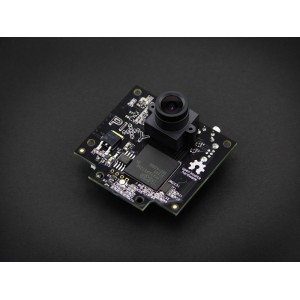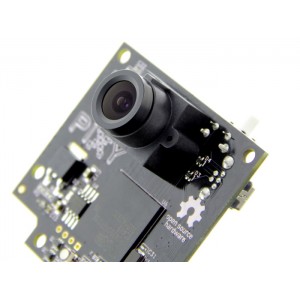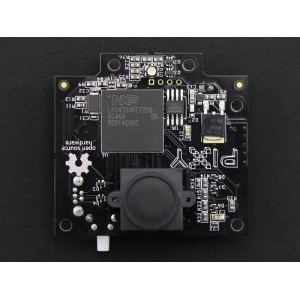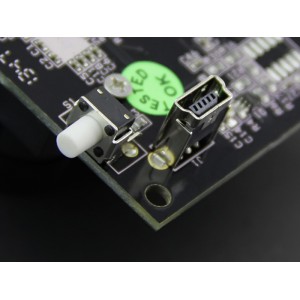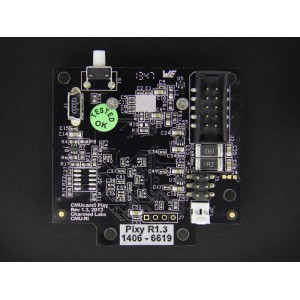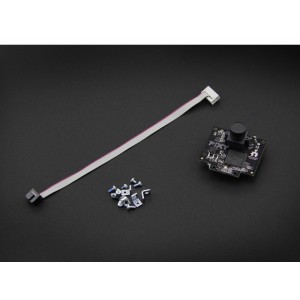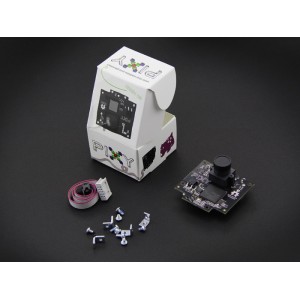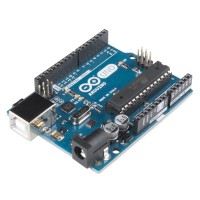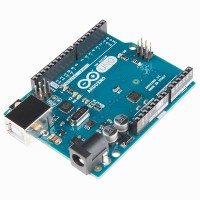Pixy is a fast vision sensor you can quickly “teach” to find objects, and it connects directly to Arduino and other controllers.
Pixy addresses two problems: 1) image sensors output lots of data, dozens of megabytes per second; 2) processing this of data can overwhelm many processors; by pairing a powerful dedicated processor with the image sensor. Pixy processes images from the image sensor and only sends the useful information to your microcontroller. The information is available through one of several interfaces: UART serial, SPI, I2C, digital out, or analog out. So your Arduino or other microcontroller can talk easily with Pixy and still have plenty of CPU available for other tasks.
It’s possible to hook up multiple Pixys to your microcontroller, for example, a robot with 4 Pixys and 360 degrees of sensing. Or use Pixy without a microcontroller and use the digital or analog outputs to trigger events, switches, servos, etc.

Features
- Pixy uses a hue-based color filtering algorithm to detect objects. Pixy calculates the hue and saturation of each RGB pixel from the image sensor and uses these as the primary filtering parameters.
- Pixy remembers up to 7 different color signatures. If you need more than seven, you can use color codes (see below).
- Pixy can find literally hundreds of objects at a time.
- Pixy processed an entire 640x400 image frame every 1/50th of a second.
- You can get a complete update of all detected objects’ positions every 20 ms.
- Pixy is unique because you can physically teach it what you are interested in sensing.
PixyMon
PixyMon is an application that runs on your PC or Mac. It allows you to see what Pixy sees, either as raw or processed video. It also allows you to configure your Pixy, set the output port and manage color signatures. PixyMon communicates with Pixy over a standard mini USB cable.
What’s a “color code”?
A color code (CC) is two or more color tags placed close together. Pixy can detect and decode CCs and present them as special objects. CCs are useful if you have lots of objects you want to detect and identify (i.e. more than could be detected with the seven separate color signatures alone).
Specification
- Processor: NXP LPC4330, 204 MHz, dual core
- Image sensor: Omnivision OV9715, 1/4”, 1280x800
- Lens field-of-view: 75 degrees horizontal, 47 degrees vertical
- Lens type: standard M12 (several different types available)
- Power consumption: 140 mA typical
- Power input: USB input (5V) or unregulated input (6V TO 10V)
- RAM: 264K bytes
- Flash: 1M bytes
- Available data outputs: UART serial, SPI, I2C, USB, digital, analog
- Dimensions: 2.1” x 1.75” x 1.4”
Documents



